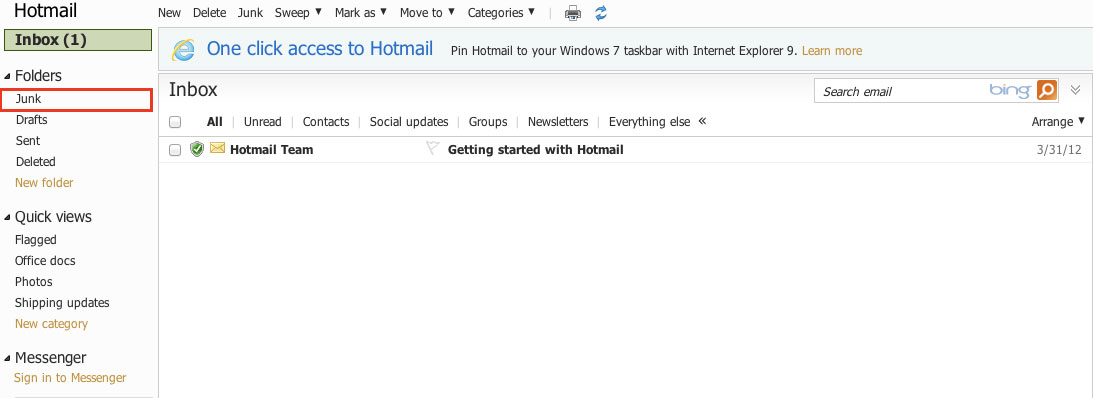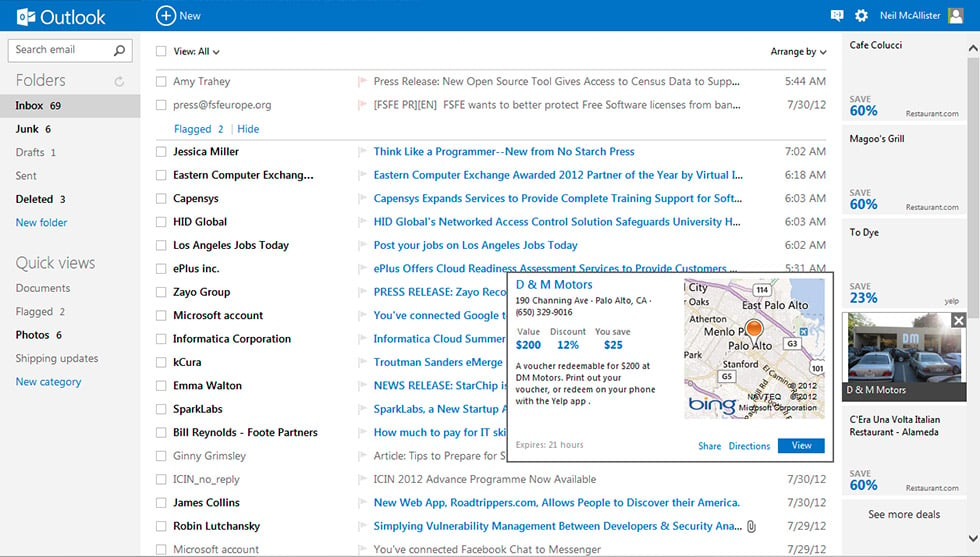

No longer access to that account means, often, impossible or very difficult to restore access to other accounts that use your old email address as password-recovery contact info! If you have used an email account for years, it's likely used with all kinds of online accounts, including financial institutions, backup email address for on- and off-line companies, etc.(And let's not even go into the topics of identity theft and expired email accounts!) Otherwise, they'll send you an email, and it will either bounce back because the account is inactive, or reach the new user who signed up for that username.


Hide the ads from your inbox: while this may sway some users, the new ad format is discrete and well integrated.Inbox storage limits have also become sort of a non-issue, since Hotmail adopted the same approach as Google (Gmail) and Yahoo Mail with what they call " ever-increasing storage" (within limits, you get as much space as you need).(Besides, storing your documents in OneDrive lets you edit them from anywhere, which can't be done email attachments.) Since Microsoft's integration of OneDrive (formerly " SkyDrive"), file attachment sizes are no longer an issue: above a certain size, files are automatically uploaded to the cloud, not embedded into the message as attachment.With increasing competition between webmail providers (AOL Mail, Gmail, Yahoo Mail, and the others), the original benefits have become somewhat obsolete:


 0 kommentar(er)
0 kommentar(er)
